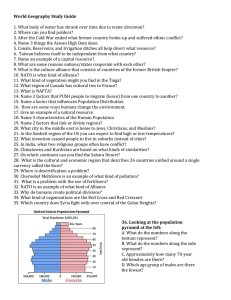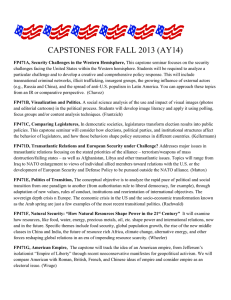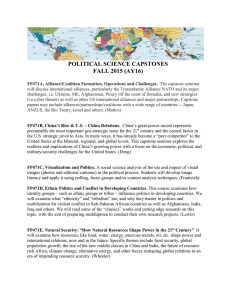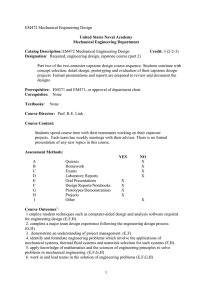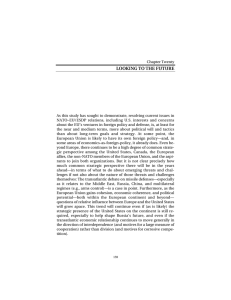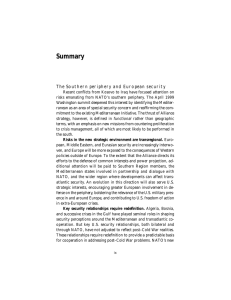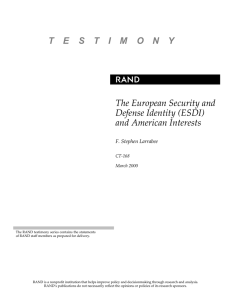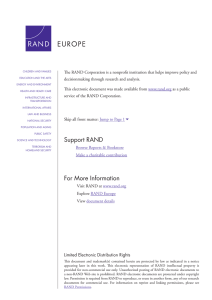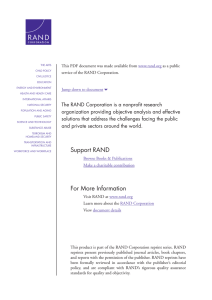CAPSTONES FOR FALL 2014 (AY15)
advertisement
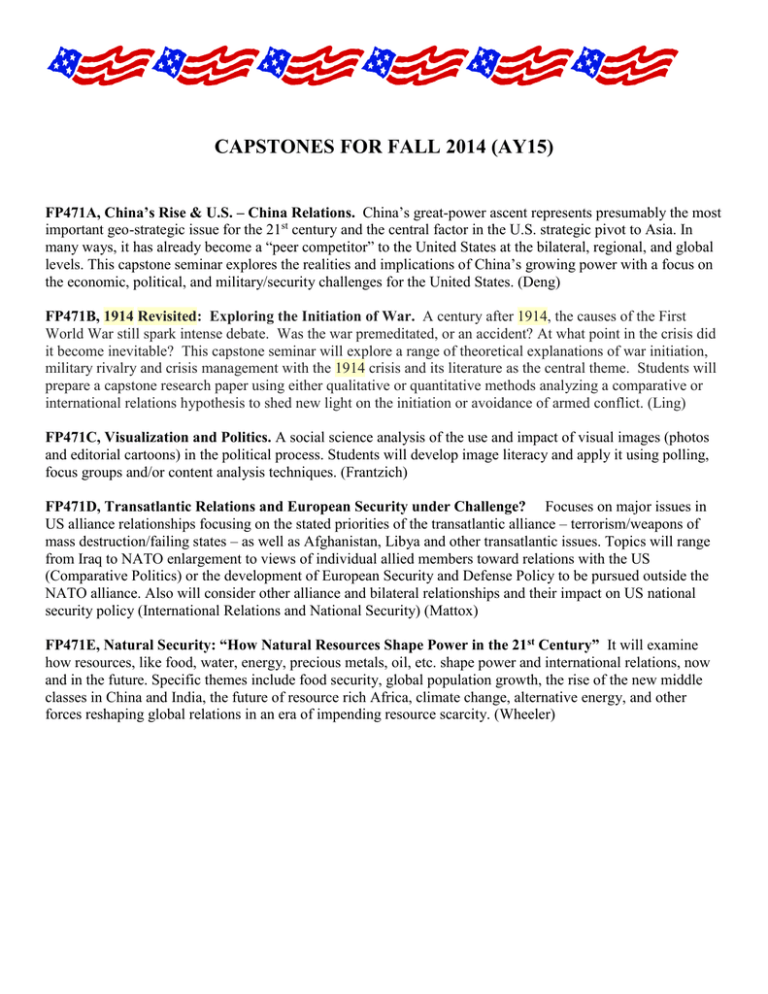
CAPSTONES FOR FALL 2014 (AY15) FP471A, China’s Rise & U.S. – China Relations. China’s great-power ascent represents presumably the most important geo-strategic issue for the 21st century and the central factor in the U.S. strategic pivot to Asia. In many ways, it has already become a “peer competitor” to the United States at the bilateral, regional, and global levels. This capstone seminar explores the realities and implications of China’s growing power with a focus on the economic, political, and military/security challenges for the United States. (Deng) FP471B, 1914 Revisited: Exploring the Initiation of War. A century after 1914, the causes of the First World War still spark intense debate. Was the war premeditated, or an accident? At what point in the crisis did it become inevitable? This capstone seminar will explore a range of theoretical explanations of war initiation, military rivalry and crisis management with the 1914 crisis and its literature as the central theme. Students will prepare a capstone research paper using either qualitative or quantitative methods analyzing a comparative or international relations hypothesis to shed new light on the initiation or avoidance of armed conflict. (Ling) FP471C, Visualization and Politics. A social science analysis of the use and impact of visual images (photos and editorial cartoons) in the political process. Students will develop image literacy and apply it using polling, focus groups and/or content analysis techniques. (Frantzich) FP471D, Transatlantic Relations and European Security under Challenge? Focuses on major issues in US alliance relationships focusing on the stated priorities of the transatlantic alliance – terrorism/weapons of mass destruction/failing states – as well as Afghanistan, Libya and other transatlantic issues. Topics will range from Iraq to NATO enlargement to views of individual allied members toward relations with the US (Comparative Politics) or the development of European Security and Defense Policy to be pursued outside the NATO alliance. Also will consider other alliance and bilateral relationships and their impact on US national security policy (International Relations and National Security) (Mattox) FP471E, Natural Security: “How Natural Resources Shape Power in the 21st Century” It will examine how resources, like food, water, energy, precious metals, oil, etc. shape power and international relations, now and in the future. Specific themes include food security, global population growth, the rise of the new middle classes in China and India, the future of resource rich Africa, climate change, alternative energy, and other forces reshaping global relations in an era of impending resource scarcity. (Wheeler)
